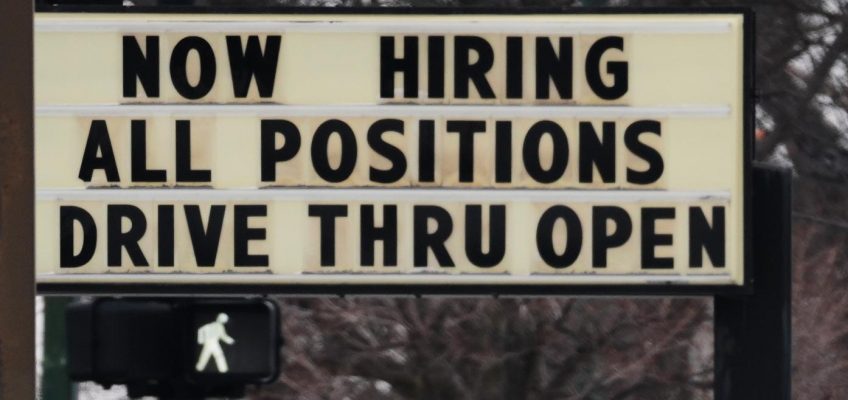By MATT OTT
WASHINGTON (AP) — Slightly more Americans applied for unemployment benefits last week as layoffs remain at relatively healthy levels.
The number of Americans filing for jobless aid for the week ending Feb. 21 rose by 4,000 to 212,000 from the previous week, the Labor Department reported Thursday. That’s in line with the forecasts of analysts surveyed by the data firm FactSet.
Related Articles
Wall Street futures unchanged before the bell after Nvidia earnings beat expectations
Aldi confirms downtown location in former Lunds & Byerlys space by summer’s end
Eagan plans to use data center pause to study potential impacts
Trump’s portrayal of ‘golden age’ is out of sync with how Americans see economy
DoorDash exits 4 markets, including Japan, to focus on growth elsewhere
Filings for unemployment benefits are viewed as representative of U.S. layoffs and are close to a real-time indicator of the health of the job market.
Earlier this month, the Labor Department reported that U.S. employers added a surprisingly strong 130,000 jobs in January and the unemployment rate fell to 4.3% from 4.4%. However, government revisions cut 2024-2025 U.S. payrolls by hundreds of thousands, reducing the number of jobs created last year to just 181,000. That’s about one-third of the previously reported 584,000 and the weakest since the pandemic year of 2020.
While weekly layoffs have remained in a historically low range mostly between 200,000 and 250,000 for the past few years, a number of high-profile companies have announced job cuts recently, including UPS, Amazon, Dow and the Washington Post in recent weeks.
The Labor Department also recently reported that job openings fell in December to the lowest level in more than five years.
For now, the U.S. job market appears stuck in what economists call a “low-hire, low-fire” state that has kept the unemployment rate historically low, but has left those out of work struggling to find a new job.
Data over the past year has broadly revealed a labor market in which hiring has clearly slowed, hobbled by uncertainty stoked by President Donald Trump’s tariffs and the lingering effects of the high interest rates the Fed engineered in 2022 and 2023 to tamp down a spike of pandemic-induced inflation.
Economists are conflicted about whether the stronger-than-expected January job gains are a one-off or possibly the first sign of a recovering labor market, which could lead the Fed to further delay more cuts to its key interest rate.
The government issues it February jobs report next week.
Some Fed officials have specifically argued that last year’s weak hiring shows that borrowing costs are weighing on growth and discouraging companies from expanding. A sustained pickup in hiring could undercut that theory.
The Labor Department’s report Thursday showed that the four-week moving average of jobless claims, which balances some of the week-to-week volatility, ticked up by 750 to 220,250.
The total number of Americans filing for jobless benefits for the previous week ending Feb. 14 fell by 31,000 to 1.83 million, the government said.




